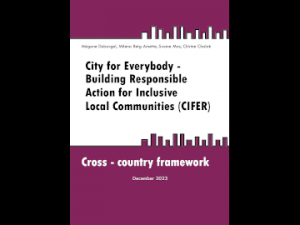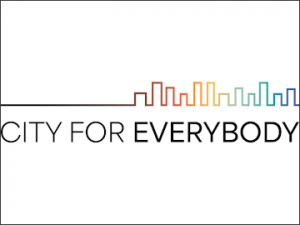Research on discrimination based on ethnicity, citizenship, skin colour and religion in Slovenia
20. 12. 2021 | Politics

The problem addressed by the research is the lack of transparent, disaggregated and credible data on the existence of discrimination based on personal circumstances of ethnicity, citizenship, skin colour and religion. For historical reasons, the collection of personal data that is broken down by personal characteristics of individuals, such as “ethnicity”, is a particularly sensitive issue in many European countries. However, as a large proportion of people in the European Union experience discrimination, inequality and social exclusion, equality data is an important tool in monitoring the implementation of legislation and policies to promote equality and non-discrimination.
In Slovenia, discrimination on the grounds of ethnicity, citizenship, skin colour and religion is particularly prevalent in the labour market (both in access to employment and at workplace), in health care, in access to services, in the housing market, and in administrative procedures. Discrimination is most often experienced by persons treated as “foreigners” by the current legislation and the majority of the population, and is particularly prevalent in relation to applicants for international protection and refugees, who also report experiences of ethnic profiling by the police. Data shows certain persons are stopped and legitimized solely because of their appearance, i.e. they are attributed status of a foreigner because of their skin colour. Individuals account experiencing daily negative public remarks and hate speech, especially online. Attitudes towards the Roma population also show discriminatory practices, especially in the field of employment and education.
Two other dimensions usually accompany unequal treatment: prejudice and the language barrier. Prejudices affect discriminatory practices and impede equal treatment, and poor knowledge or misunderstanding of the Slovene language prevents people from accessing equal treatment, despite their formal rights. The personal circumstances under consideration do not necessarily mean that they are foreign citizens, since persons born in Slovenia are also discriminated against solely on the basis of their name and surname, language, skin colour, ethnicity or religion.
Research has shown that discrimination based on skin colour, language and religion is often strongly associated with discrimination based on ethnicity and citizenship, which means that a person experiences at least two types of discrimination at the same time.
In Slovenia, the topic of discrimination is often underestimated, cases of sanctioning discriminatory practices are rare, and there is a lack of systematic awareness-raising campaigns and systematic education against prejudice. There is a lack of public debate on this topic. The state should provide space and opportunities to raise awareness and eliminate discrimination. Above all, there is a lack of quality data on the area of unequal treatment, which would be collected according to a harmonized methodology and longitudinally.
Published articles about the project (in Slovenian):
The research was carried out as part of a targeted research project entitled “Reducing and eliminating discrimination based on ethnicity, ‘race’, nationality and / or religion”, which took place from 1 November 2019 to 31 October 2021. It was co-financed by the Advocate of the Principle of Equality and the Agency of the Republic of Slovenia for Research and Development.



